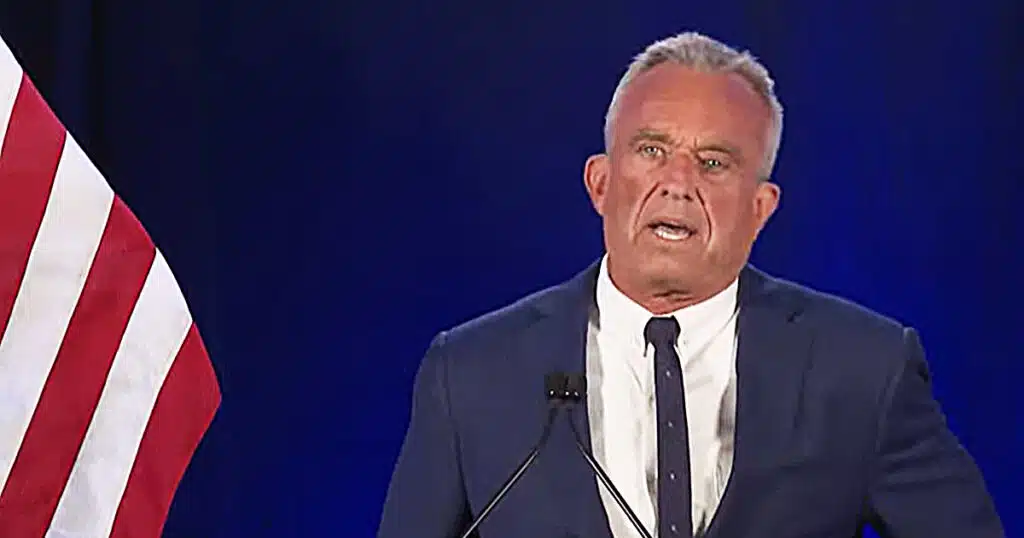
RFK Jr. says ‘autism epidemic’ linked to environmental toxins, not just genetics
The dramatic rise of autism in children across the U.S. is partially due to increased exposure to environmental toxins over the past fifty years, Health and Human Services Secretary Robert F. Kennedy Jr. said during a press conference Tuesday.
Drawing from the Centers for Disease Control and Prevention’s newly released Autism and Developmental Disabilities Monitoring Network survey, Kennedy highlighted how autism prevalence is nearly five times higher than recorded in the first ADDM survey 22 years ago.
The CDC report, using data in 2022 from 16 monitoring sites across the U.S., showed that one in 31 eight-year-olds born in 2014 and one in 34 four-year-olds born in 2018 in the U.S. are autistic.
Whether environmental factors play a role in autism is a highly controversial topic still undergoing research. Kennedy’s comments are a break from his critics who say autism is a genetic condition. Kennedy said the scientific community’s hyperfocus on finding a genetic cause is “a dead end.”
“This is a preventable disease. We know it’s an environmental exposure, and it has to be,” Kennedy said. “Genes do not cause epidemics—they can provide a vulnerability, [but] you need an environmental toxin.”
Kennedy also denied the claim that scientists are seeing increased rates of autism only because of changing diagnostic criteria and better recognition rates.
“We know what the historic numbers are, and we know what the numbers are today, and it’s time for everybody to stop attributing this to this ideology of epidemic denial,” Kennedy said. “Only a very small portion of it can be charged [as] better recognition or better diagnostic criteria.”
According to data tabled by the CDC, the autism prevalence rate has increased from an average of four per 10,000 children in the 1970s to one per 88 children in 2008, now one in roughly 31 to 36.
Kennedy believes that the “epidemic denial” is based on “an industry canard.”
“If the epidemic is an artifact of better diagnostic criteria or better recognition, then why are we not seeing it in older people? Why is this only happening in young people?” he added, calling for the press to be more inquisitive.
“This is coming from an environmental toxin, and somebody made a profit by putting that environmental toxin into our air, our water, our medicines, our food,” Kennedy said. “And it’s to their benefit to normalize it, to say ‘oh, this is all normal, it’s always been here.’ But that’s not good for our country.”
As part of its mission to find the root causes of autism and other chronic diseases, the HHS is going to “remove the taboo” on certain types of research and “look at all potential culprits,” Kennedy said, including mold, food additives, pesticides, ultrasounds, medicines, and air and water pollution.
The HHS has promised to begin releasing such studies — “done by the most credible scientists from all over the world” — within the next three weeks.
The Autism Society, America’s oldest grassroots autism organization, celebrated Kennedy’s renewed emphasis on studying the condition but argued the CDC’s report does not prove the existence of autism preventability or an autism epidemic, only improved diagnostics.
“The Autism Society of America remains committed to ensuring that prevalence data drives equity and access — not fear, misinformation, or political rhetoric,” Autism Society President Christopher Banks said. “Further exploring data like this report, requires significant funding, expert-led, quality, transparent research methodology, that follows peer-reviewed due process.”



